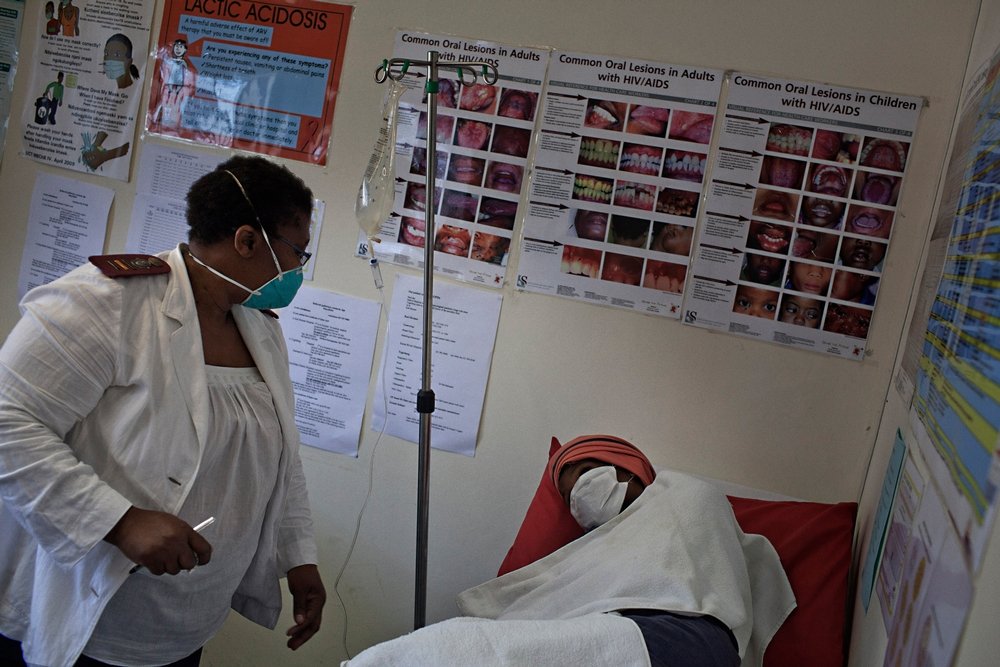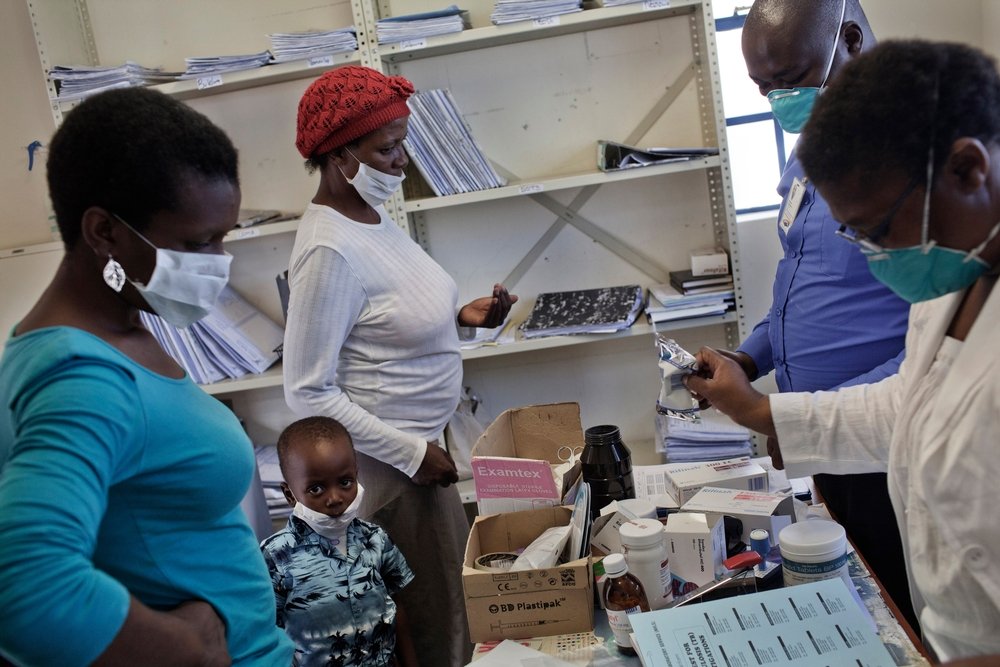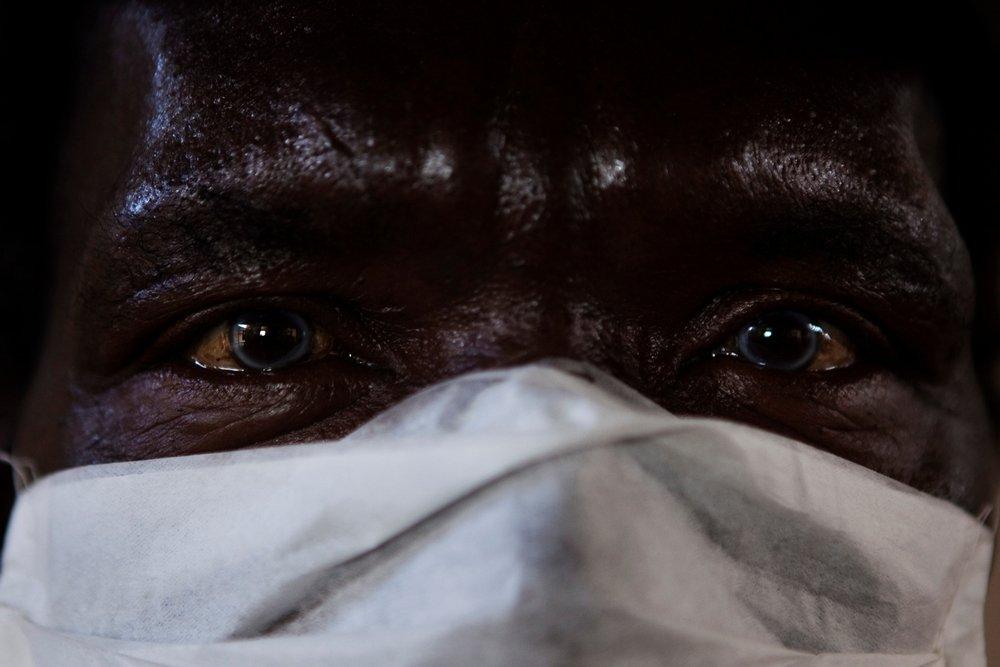
Durban, South Africa – Presenting operational research findings at the 4th South African TB Conference, Doctors Without Borders (MSF) together with other treatment activists, called on government authorities to urgently scale up access to a cost-effective decentralised treatment model for drug-resistant tuberculosis (DR-TB), and to increase access to more affordable versions of drugs to develop better DR-TB treatment regimens.
South Africa faces a growing epidemic of DR-TB with more than 14,000 people a year diagnosed with the disease, for which treatment outcomes are poor with current standard drug regimens. Generally, up to 20% of DR-TB patients are also resistant to the few available second-line drugs and they are considered to have extensively drug-resistant (XDR-TB), or pre-XDR TB. Today less than half of those diagnosed with DR-TB in South Africa are started on treatment – and those who do start face less than 50% chance of cure.
“To slash death rates and new infections South Africa must take urgent action to end the deadly waiting game for thousands of patients, by scaling up decentralised treatment models and developing more effective new drug regimens. Politicians with another five years in office have time on their side, but with the sub-optimal treatment tools available today, patients certainly do not,” said MSF TB doctor Jennifer Hughes.
MSF research presented at the 4th SA TB Conference indicated that using new diagnostic tools within a decentralised model of care reduces the time it takes to start patients on treatment, from several months to less than a week. More rapid treatment initiation shortens the time a person risks infecting others while a fully decentralised model – where treatment initiation and case management is conducted in primary care facilities – can reduce the number of patients requiring costly hospital stays.
A study, presented by MSF and the University of Cape Town, found that a fully decentralised model was 42% cheaper than a fully centralised hospital-based model. The study indicated the average cost per patient could be as low as R72,103 in a fully decentralised DR-TB treatment model compared to R124,918 per patient in a fully centralised hospital-based model. The average cost per patient in two partially decentralised models examined in the study ranged from R75,907 to R89,438. According to the study, hospitalisation accounted for a significant portion of the cost per patient: 68% of the costs for fully centralised hospital-based models, compared to less than 45% for decentralised DR-TB care models.

The study projected that the potential annual cost-savings to the national TB programme – with full implementation of decentralised DR-TB care across South Africa – could reach up to R847 million.
“The cost benefits of decentralised models of care are clear, as are the positive impacts for patients The race should now be on to turn plans into action,” said John Ashmore, MSF Deputy Project Coordinator in Khayelitsha. “But nearly three years after the Department of Health adopted a national DR-TB decentralisation policy, progress has been slow and uneven in many other areas in South Africa. The National Department of Health must ensure provinces are adequately supported to design and implement decentralisation strategies.”
While full implementation of decentralised models of care hold much promise the available outdated drugs used to treat people still frustrate greater success. MSF experience shows that over 30% of patients are lost from treatment during the brutal two-year regimen– which consists of over 14,000 pills and painful injections which can have terrible side effects.
“The first new TB drugs in 50 years are entering the global market, but other promising drugs are too expensive to help everyone who could benefit from them. The Departments of Health and Science and Technology should promote research that tests how these new drugs could be used together to create shorter, more effective treatment regimens. They must also collaborate with the Medicines Control Council to prioritise registration of the required medicines,” said Dr Hughes.
The antibiotic linezolid is a drug that could be used in developing a better DR-TB regimen, which MSF has been using for selected DR-TB patients in Khayelitsha since 2011. The pharmaceutical company Pfizer holds a monopoly on linezolid sales in South Africa and charges over R700 per daily pill in the private sector. This high price limits the number of patients MSF can offer linezolid to as an effective treatment option within a multi-drug regimen.
MSF’s attempts to expand access to linezolid have thus far been frustrated. In December 2013 MSF filed an application with the Medicines Control Council (MCC), requesting permission to import a quality-approved generic linezolid product that was not yet registered in South Africa, at a dramatically lower price of R80 per tablet. The MCC rejected MSF’s application, claiming that affordability was not a consideration. In March 2014 MSF appealed this decision and negotiations with the MCC to find a resolution continue.
“We strongly disagree with the MCC’s reason for rejecting our application. The high price of linezolid is the main barrier to MSF providing greater access for our patients. We think the MCC is compelled to progressively realise the constitutional right of everyone in South Africa to have access to healthcare services – especially for life-threatening conditions such as DR-TB,” said Julia Hill, MSF Access Advocacy Officer.
Find out more about MSF in South Africa
